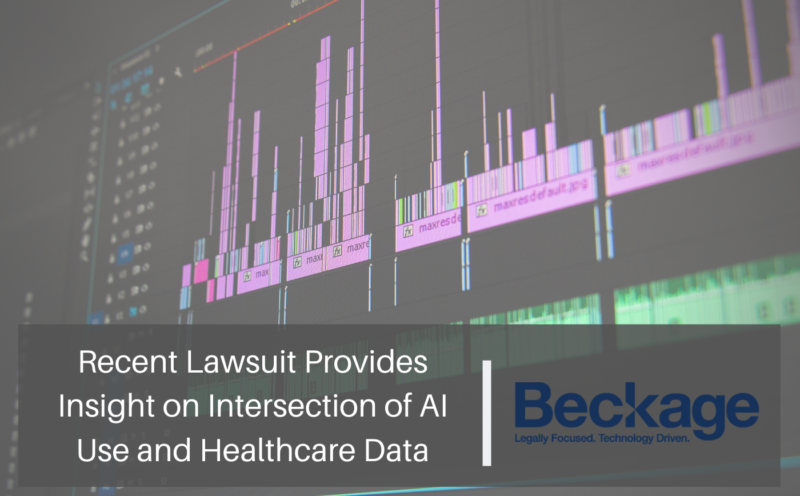
In the healthcare sector, Artificial Intelligence (AI) is changing the way hospitals, providers and insurers do business. AI platforms offer the promise of more efficient detection, diagnosis and treatment, improved clinical workflows to increase patient time with providers, and broader reach of clinical services. One challenge is balancing the massive amounts of clinical data needed to inform AI with individual privacy and control of sensitive information.
A recent class action lawsuit filed against University of Chicago Medical Center and Google illustrates the potential risks involved in AI development using clinical data. University of Chicago Medical Center entered into a partnership with Google intended to improve predictive diagnosis of medical conditions. Google was provided access to clinical records that did not include patient names, dates of birth or social security numbers; however, the lawsuit alleges that the inclusion of locations and dates of treatment violates privacy laws because Google could combine this information with previously collected data to identify patients. Though the case is still being litigated, it highlights the potential risks of sharing clinical data in the context of AI.
If you are considering a new AI platform, or if your electronic health record (EHR) includes the use of de-identified clinical data by the EHR provider, legal review should be conducted to address the complex regulatory hurdles presented by AI technology including state privacy laws, the Health Information Portability and Accountability Act (HIPAA), and the European Union’s General Data Privacy Regulation (GDPR). Business should consider adopting and implementing an AI policy, and regularly review your Notice of Privacy Practices to confirm that your use and disclosure of clinical data is consistent with your policy. Moreover, a business should consider security assessments and investing in independent testing and validation of any new AI platforms prior to utilizing patient data for these platforms.
Have questions? Our team at Octillo is uniquely positioned to advise on emerging privacy laws at both the state and national level. We are former technologists, seasoned health care lawyers and have worked on numerous AI matters. Learn more about our Artificial Intelligence team here.
*Attorney advertising. Prior results to not guarantee a similar outcome.

